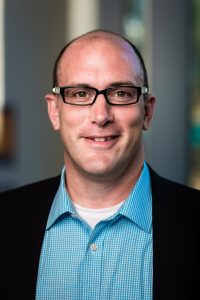 Professor George Theoharis recently spoke to local media on the past, present, and future of local K-12 schools.
Professor George Theoharis recently spoke to local media on the past, present, and future of local K-12 schools.
Remote and hybrid learning was implemented in spring 2020 in response to the COVID-19 pandemic, and remains in place for many K-12 students. However, hybrid classrooms should be much less common in the fall, according to Theoharis in an interview with syracuse.com for “How remote learning will probably be different at CNY schools in the fall.”
“Teachers who taught both sets of kids at the same made the best of it, but it was really hard,” says Theoharis of the hybrid model of having students learn both in-person and remotely over the course of each school week. Some districts are planning to implement remote options for families who opt to have their children learn completely online. Theoharis notes that when creating remote schooling for future, there are things districts and BOCES programs “can learn from this [past year] that we can incorporate into our schools, Two years ago, who could have imagined this?”
Theoharis also discussed the history and present of segregation in the Syracuse City Schools with CNYCentral for their series The Map: Segregated Syracuse. The neighborhood-based school system in Syracuse and most local districts means that many schools are segregated along racial, ethnic, and socioeconomic lines. Theoharis, who studies inclusive practices and their impact on student achievement, noted in “Segregated Syracuse elementary school keeps failing children” that:
“As our schools become more integrated the achievement gap closes. Steadily paired exactly with integration. When we see opportunities expanding for students of color who have been denied certain opportunities, we see their achievement improving. We don’t see white students dipping; we see their achievement improving.”
For “Why is no one talking about desegregating Syracuse schools?” Theoharis questions why conversations around equity and effectiveness often overlook the impact, and possibilities for schooling. “Part of it is pragmatic, but there’s no way smart people in this community can say there’s no way we can integrate our schools. The thing we’re trying to do is integrate the city and the county, and schools are so far away that we cannot even talk about that?”
You can watch his full interview with CNYCentral’s Matt Mulcahy:
Theoharis is a professor of educational leadership and inclusive education. He coordinates the educational leadership doctoral program and inclusive early childhood program, as well as the education studies minor. His research focuses on issues of equity, justice, diversity, inclusion, leadership, and school reform. He is a co-author of Five Practices for Equity-Focused School Leadership and co-editor of Leadership for Increasingly Diverse Schools, now in its second edition.
